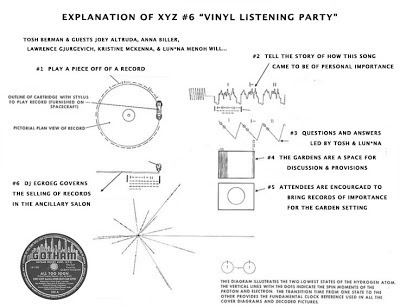Tosh Berman's Blog, page 248
November 18, 2013
Azio II Gruppo di improvvisazione Nuova Consonanza
The beauty of Gruppo di improvvisazione Nuova Consonanza. With Mario Bertoncini, Walter Branchi, Franco Evangelisti, John Heineman, Roland Kayn, Egisto Macchi, Ennio Morricone, Ivan Vandor 1967-1969
http://youtu.be/P1S6WsvfI6w
Published on November 18, 2013 09:58
November 17, 2013
November 14, 2013
"The Night" by Michéle Bernstein (Translated by Clodagh Kinsella) Edited by Everyone Agrees
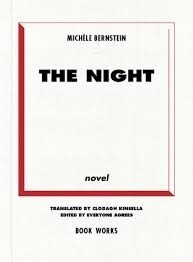
One can gather that this is memoir writing, since we think the main two characters are Guy Debord and the author of this book, Michéle Bernstein. And the book plays with the concept of memoir and novel, but it does say 'novel' on the front cover, and I am going to go with that. The book is very much like Bernstein's first book "All The King's Horses" except this is witty turned into a 'new novel' or Nouveau Roman. Whatever it is a satire or a homage to that form I don't know, but either way it doesn't take away the enjoyment of going with the main couple's long walks through the Left Bank of Paris. in fact I had to stop myself from google mapping the streets - which one can do, because their walks are deeply and specifically perfect. There is another woman involved and in a way it is a story about seduction, power, and exploring. I'm a Bernstein fan.
Also the production level of the publisher of this book, Book Works, is pretty great. The book is translated by Clodagh Kinsella and edited by Everyone Else. There is a sequel of sorts.... well review that next!
Published on November 14, 2013 17:34
November 12, 2013
KChung Radio Interview with Tosh Berman
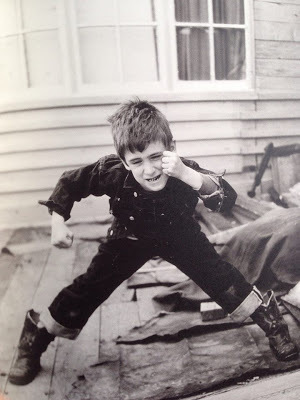 Photo by Wallace Berman, 1959
Photo by Wallace Berman, 1959http://www.kchungradio.org/archive/2013-11-08/Photo_Black_Soo_Kim_Lisa_Ohlweiler-11-08-2013.mp3
I did an interview on KChung Radio with Soo Kim and Lisa Ohlwiler with respect to a photograph that my father Wallace Berman took of me. 36:20 and somewhere in that time-frame the interview starts, but the whole show is interesting. All regarding the issues of photography.
Published on November 12, 2013 10:24
Sparks at the Fonda Theater November 11, 2013
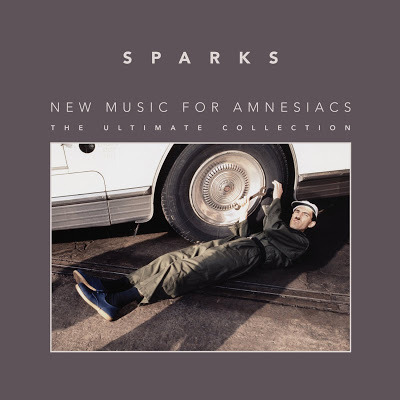
Last night I was transformed into another space that some can call "Sparks-Land." The beauty of the performance was pitch-perfect. And without a doubt for the Sparks' fanatic. Their current set is deep in the catalog, and it is almost like a secret message from artist to fan. By no means was this a causal show, but more likely a current statement on Sparks circa 2014.
The scary thing about the Sparks unit is that they keep getting stronger and stronger. I know this sounds like a fan's insane rave, but the beauty of their shows is the way they look back into their most obscure tunes as well as the 'hit's songs and re-invent them in a new light. These two artists don't compromise, it is take-me-all or not-at-all, and as a fan, it is great to take the giant leap with them into new territories.
Russell Mael, at the moment, is at his best. Physically as well as voice-wise. The stage belongs to him as one who takes over the personal study in a stranger's house. The space is is, and no one else. Ron Mael handles the keyboards, and the show is a combination of music hall via the world of Sparks and a statement of an aesthetic that can't be better. The beauty of the relationship between the brothers blossoms as an one unit, unified in presenting work that will always be challenging, yet, solid as the great American songbook. I have seen Sparks numerous times over the past decades, and this show may have been the best.
The illustration above (and below) is a new box-set from Sparks. It has to be an essential must-own.
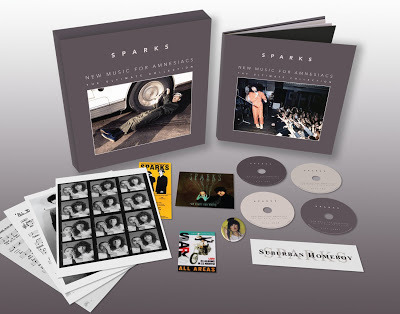
Published on November 12, 2013 08:52
November 11, 2013
Signed Copies of "In The Words Of Sparks... Selected Lyrics" by Ron Mael & Russell Mael at their Show tonight
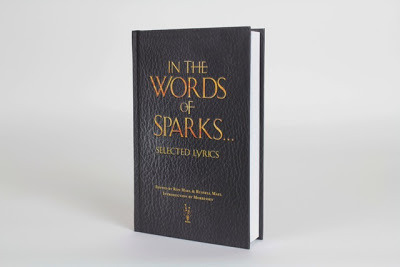
For those who are going to see Sparks tonight (Monday November 11, 2013) in Los Angeles, there will be signed copies of "In The Words Of Sparks... Selected Lyrics" for sale. Check their merchandise table somewhere in the lobby at the Fonda Theater on Sunset Blvd. Oh, and their show is going to be fantastic.
Published on November 11, 2013 11:26
November 10, 2013
Vinyl Listening Party With Tosh Berman and Joey Altruda, Anna Biller, Lawrence Gjurgevich, Kristine McKenna, & Lun*na Menoh
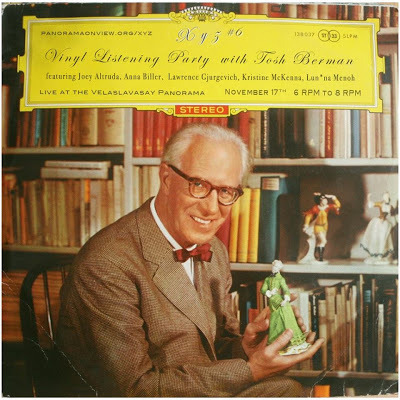
Joey Altruda, Musician & Disc Jockey
Anna Biller, Filmmaker & Composer, Director of VIVA
Lawrence Gjurgevich, Founder, Promoter, & Disc Jockey at Club Underground Events
Kristine McKenna, Curator, Music & Art Journalist, Publisher
Lunna Menoh, Artist, Singer of performance band, Les Sewing Sisters, and previous Host of The XYZ
&
Tosh Berman, host of the XYZ Zenith, Publisher & Editor of TamTam Books & Writer of the recently released Sparks-Tastic
All are congregating with Members & Non-members of The XYZ to play a piece off of an LP that is of vital importance and telling the story behind what made it so.
This will be the concluding assembly of TheXyz Club until further notice.
Reservations Recommended:
http://xyz6.brownpapertickets.com/
Published on November 10, 2013 19:26
3 a.m. Magazine interview with Tosh Berman (some years back)
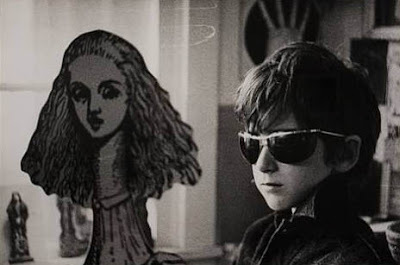 Photo by Wallace Berman
Photo by Wallace Bermanhttp://www.3ammagazine.com/3am/american-rive-gauche-an-interview-with-tosh-berman/
Published on November 10, 2013 17:33
November 9, 2013
L'écume des jours Manuscript (Boris Vian)
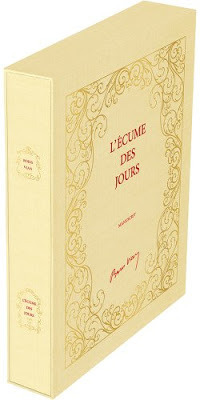 A replica of the original manuscript of Boris Vian's "L'écume des jours (Foam of the Daze). I found this on Amazon France, and its a pricey devil of a book or package. But for the Vian fanatic I think it's a must-have.
A replica of the original manuscript of Boris Vian's "L'écume des jours (Foam of the Daze). I found this on Amazon France, and its a pricey devil of a book or package. But for the Vian fanatic I think it's a must-have.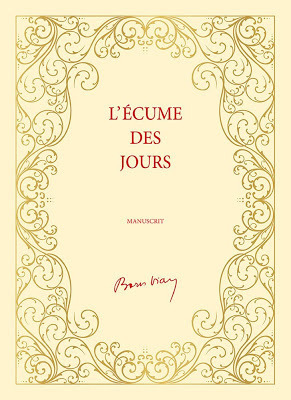
Published on November 09, 2013 13:33
November 5, 2013
Brian Jones - "A Degree Of Murder"
I always felt that Brian Jones is probably the most underrated figure in 20th Century rock music. I think he got picked on, and wasn't encourage to do more songwriting. Clearly he had talents that was not used, and partly it is his fault, but the image of him just being a stoned-out figure is partly a myth. The recording down below is not a masterpiece, but one suspect that he could have done more music on his own terms. Its a shame that he didn't live, and that he didn't leave more of 'his' music behind for us to listen, enjoy, argue, etc. and etc.
The music here is for the opening credits to a film called "A Degree Of Murder."
Brian Jones - A Degree Of Murder download free mp3
Published on November 05, 2013 13:25

